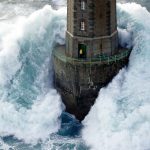It’s Sunday morning, October 2, 4:30 a.m. I’m writing this from a hotel bathroom so as not to wake my wife. A week ago, I couldn’t have imagined this is where I’d be today.
Normally on a Sunday morning, I’d be getting up around 5:30 or so and heading out for a beach walk to pray and think through my sermon. This Sunday in particular would’ve been the beginning of a new sermon series in Daniel, followed by the Lord’s Supper.
But instead, I’m in a hotel bathroom.
I don’t have a house. My earthly possessions now fit in my truck. I can’t go to my favorite beach. I have no idea when I’ll preach again to my beloved congregation in Sanibel, Florida. And I didn’t get around to studying Daniel much this week.
Where Are You Today?
I’m thinking of my church family. Some are also in hotels on the east coast. Some are staying with family and friends, wondering how long the arrangement will work. Others are watching this disaster from a distance, filled with more questions than answers and plagued by a vexing sense of helplessness. Some are in the Fort Myers area without power or internet or consistent cell service. Some are stuck in shelters at Shell Point because the storm surge wiped out most of the cars there. Some are—I don’t know where.
Is the situation real to you yet, or are you still in shock? The feelings and thoughts come in waves.
God needs no insurance policy because he reigns above the flood. He is the only safe place.
I haven’t had much time or capacity to reflect on the events of this past week. Most of my mental energy has been spent trying to coordinate efforts, solve problems, and find people. But this morning in a bathroom “office” is a rare moment of contemplation. I’m thinking about Psalm 46:
God is our refuge and strength, a helper who is always found in times of trouble. Therefore we will not be afraid though the earth trembles and the mountains topple into the depth of the seas, though the water roars and foams and the mountains quake with its turmoil. (Ps. 46:1–2, CSB)
The psalmist meant the roaring sea as a metaphor for turmoil and danger, particularly the danger of hostile nations around Israel. But here in Florida we just saw that metaphor’s literal referent. We saw the sea rise up and swallow homes, cars, bridges, and lives. The storm cut the causeway islands in half. The power of the sea flung boats and cars all over Iona. Fort Myers Beach is devastated.
Where Is God?
Psalm 46 describes an earth-shattering ocean storm. These verses will never again be an abstraction for those of us from Sanibel. Yet we must not forget how the psalm begins.
God is our refuge. No storm touches him. He needs no insurance policy because he reigns above the flood. He is the only safe place.
God is our strength. He never loses power or fuel. He doesn’t feel anxious or perturbed and has no troubled thoughts about the future. Our heavenly Father is not passing through phases of shock, grief, and despair. He dwells in perfect peace, joy, and delight at all times. He is not exhausted or depleted.
God is a helper who is always found. He isn’t helpless like us. He isn’t stuck watching the news, imagining himself renting a boat so he can sneak onto the island and get to work. God is our helper who’s always with us in times of trouble. Trouble comes and goes. Hurricanes pass. But our helper never changes or leaves us. Even when our future is uncertain and our lives have been completely overturned, we know these things about God. He is almighty; he is eternal; and he loves us.
No wonder the psalmist can look into the tempest and say, “Therefore we will not be afraid.” The psalmist isn’t in denial about the storm’s power. Rather, he beholds the Lord’s greatness and power and lovingkindness toward us. God is willing and able to help his storm-tossed people. The fury of Hurricane Ian is a gentle breeze compared to the might of our Savior God.
The fury of Hurricane Ian is a gentle breeze compared to the might of our Savior God.
If the psalmist knew these things about the Lord, how much more should we who live in light of the cross? Our Lord Jesus has rendered the ultimate aid. He bore the terrifying storm of God’s wrath to save us from our sins. The cross is our refuge and Christ is our strength, risen and ever-present to help us. Let us go to his throne boldly for mercy and grace.
Strength in the Storm
Trusting in God as our refuge, strength, and help gives us an internal strength that stands in stark contrast to the chaos of the storm:
There is a river—its streams delight the city of God, the holy dwelling place of the Most High. God is within her; she will not be toppled. God will help her when the morning dawns. (Ps. 46:4–5, CSB)
Yes, there is a raging ocean. But there is also a river—and from our Lord flows peace and life. We have been shaken, but because the Lord is within his people, we will not topple.
Look to the Lord, brothers and sisters. We won’t topple. We won’t collapse. Sanibel Community Church still stands—even though our building does not.
And this stream isn’t just for us. The Lord wants his living waters to flow out of our lives into the lives of others. I bet even in the pain and confusion of this past week, the thought has crossed your mind, How will the Lord use this to advance the gospel and display his glory? Keep asking that question. Turn it into a prayer.
Our calling—to be salt and light and to bear witness to Jesus—hasn’t changed. Our mission remains intact. We’re still here to multiply maturing disciples of Jesus and healthy churches for the glory of God and the good of the world. All that has changed are the circumstances and contexts where God is calling us to execute that mission.
Hope amid Chaos
On Wednesday as the storm raged, I was sitting in a mall in Boca Raton trying to get internet access. One of the stores had a TV with news coverage. Starved for information, I walked over to watch with a few others. We started talking; I told them I was a Sanibel refugee. The strangers around me stood in shock as I described what little I knew was happening on Sanibel, Captiva, and Fort Myers.
The conversation ended, and I returned to my computer. A few minutes later, a store employee came over: “I’m sorry, but I just have to ask: Why are you so calm? You’re losing everything and yet you seem so nonchalant.” It was a funny question because I didn’t feel calm or nonchalant. Yet that’s what he perceived.
So I started to explain, “Well, I’m a Christian, and I pastor a church.” I didn’t get to finish my sentence. His face lit up, and he said, “Of course! You have God. It all makes sense.” And he walked away smiling.
I bet many such conversations await us in the coming weeks and months. Wherever you are today, take time to sit beside the river of God and be filled with his peace. And then take his word, his gospel, and his love to a helpless and hopeless world that’s still sinking.
- Restoring our lives by caring for practical needs of church members adversely affected by the hurricane.
- Restoring our church by helping tp establish a new congregation in Fort Myers, provide housing for staff, and ultimately restore the facility on Sanibel.
- Restoring our community by partnering with outside groups and churches to provide relief in our community, and leveraging our staff and members to care for neighbors.
Involved in Women’s Ministry? Add This to Your Discipleship Tool Kit.
 We need one another. Yet we don’t always know how to develop deep relationships to help us grow in the Christian life. Younger believers benefit from the guidance and wisdom of more mature saints as their faith deepens. But too often, potential mentors lack clarity and training on how to engage in discipling those they can influence.
We need one another. Yet we don’t always know how to develop deep relationships to help us grow in the Christian life. Younger believers benefit from the guidance and wisdom of more mature saints as their faith deepens. But too often, potential mentors lack clarity and training on how to engage in discipling those they can influence.
Whether you’re longing to find a spiritual mentor or hoping to serve as a guide for someone else, we have a FREE resource to encourage and equip you. In Growing Together: Taking Mentoring Beyond Small Talk and Prayer Requests, Melissa Kruger, TGC’s vice president of discipleship programming, offers encouraging lessons to guide conversations that promote spiritual growth in both the mentee and mentor.

































